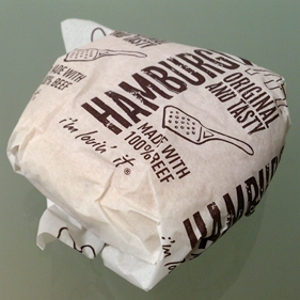We’ve all heard the reports about how certain fast food menu items, cooking Oils and cooking methods can result in cancer-causing chemicals in the food. Well, a new study says that even the wrappers and cartons your Burgers and Fries come in could be harbouring carcinogens…
 Everywhere food is prepared to take out, there are grease-proof papers, boxes and sleeves…
Everywhere food is prepared to take out, there are grease-proof papers, boxes and sleeves…
The study, by a consortium of experts from nine different U.S. universities claims that as much as one third of the packaging material used in the fast-food sector may be contaminated with chemicals that could potentially cause cancer.
The problem…
The villains in this scenario are Per- and Polyfluoroalkyl substances (PFASs), synthetic chemicals, some of which have been associated with cancer, developmental toxicity, immunotoxicity, and other health issues. They’re commonly found in nonstick, stain-resistant, and waterproof consumer products. Now, researchers have tested approximately 400 samples of wrapping papers, paperboard boxes and sleeves and beverage containers and found a rather alarming amount of PFASs.
The heart of evil in PFASs is the ‘F’ word – Fluorine. Another nasty aspect of the chemicals is that they persist (i.e.- take a long time to break down) in the human body. That makes them even more dangerous than some other compounds that are digested and flushed out quickly.
Not just a cancer risk…
As noted above, PFASs are not only suspected as promoters of cancer; they are also linked to kidney and testicular cancer, low birth weight, thyroid disease, decreased sperm quality, pregnancy-induced hypertension, and immunotoxicity in children. Toxicological studies in animals have linked PFOA and/or PFOS exposure to altered mammary gland development, reproductive and developmental toxicity, testicular cancer, obesity, and immune suppression.
The solution…
While there are no studies (yet?) determining just how much PFASs actually transfer to the food from the packaging, it’s safe to say that some do. So, there’s no way to gauge the average Fast Food consumer’s actual exposure. Fortunately, the researchers in today’;s survey say there are suitable replacement compounds that are much less dangerous than PFASs. The question is, will the Fast Food industry take note and act appropriately? I think they’ll do so – but only if they think they can get some promotional capital out of it. They’re already milking Sustainability and ‘Clean’ Meat products for all they’re worth…
~ Maggie J.

